Why you can trust Tom's Hardware
AMD Ryzen 5 5600 and 5500 Gaming Benchmarks — The TLDR
As usual, we're testing with an Nvidia GeForce RTX 3090 to reduce GPU-imposed bottlenecks as much as possible, and differences between test subjects will shrink with lesser cards or higher resolutions. You would never see these low-end chips paired with an RTX 3090, but this allows us to highlight unrestrained chip performance. Because most of the titles below show little meaningful differentiation at higher resolutions, we only tested four of the seven titles at 1440p. We typically include Microsoft Flight Simulator in our test suite, but we encountered inexplicable issues with loading the game on our AMD test platforms and didn't have time to rectify the issue prior to the NDA lift (this issue is with the game itself, and is not indicative of an issue with AMD's chips).
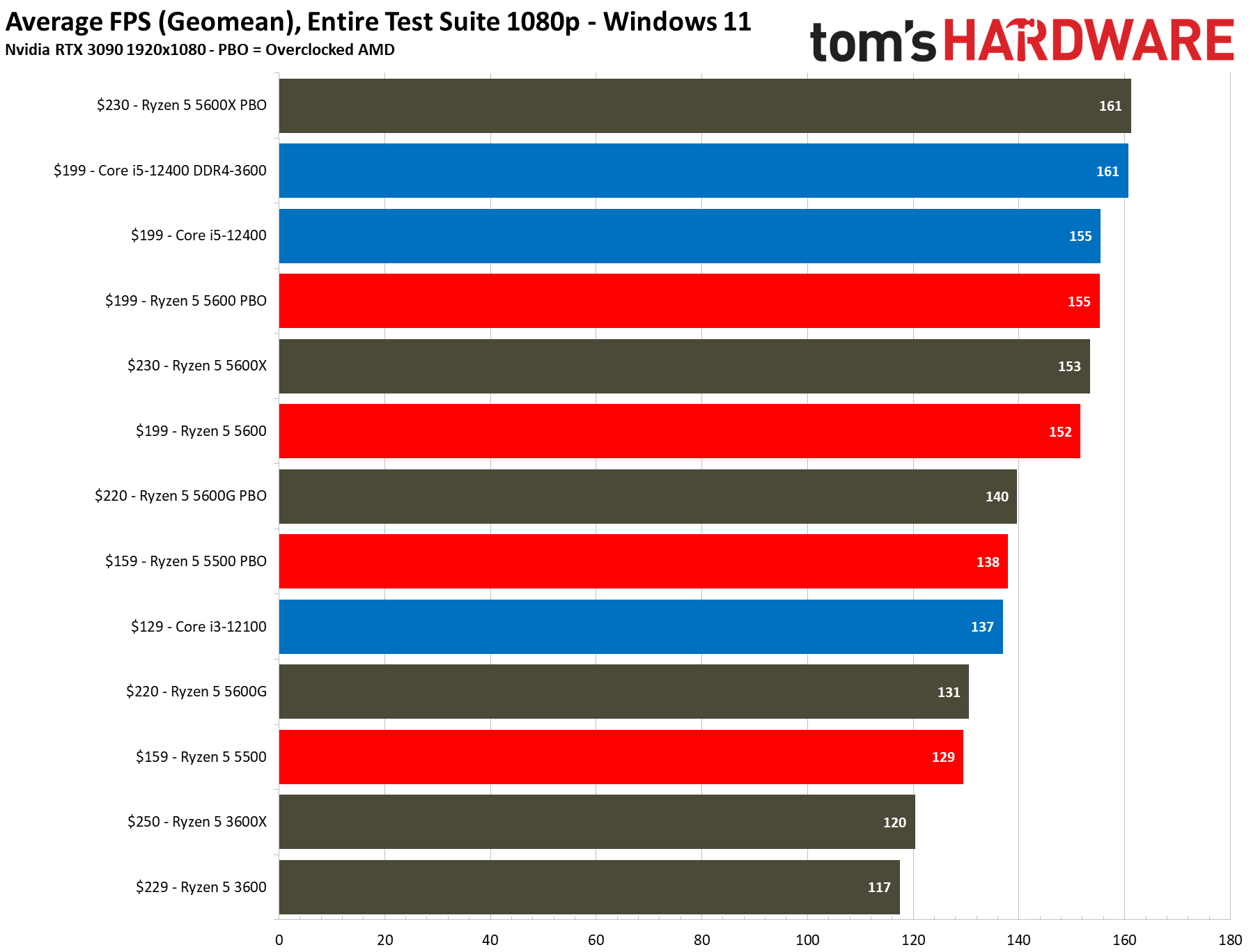
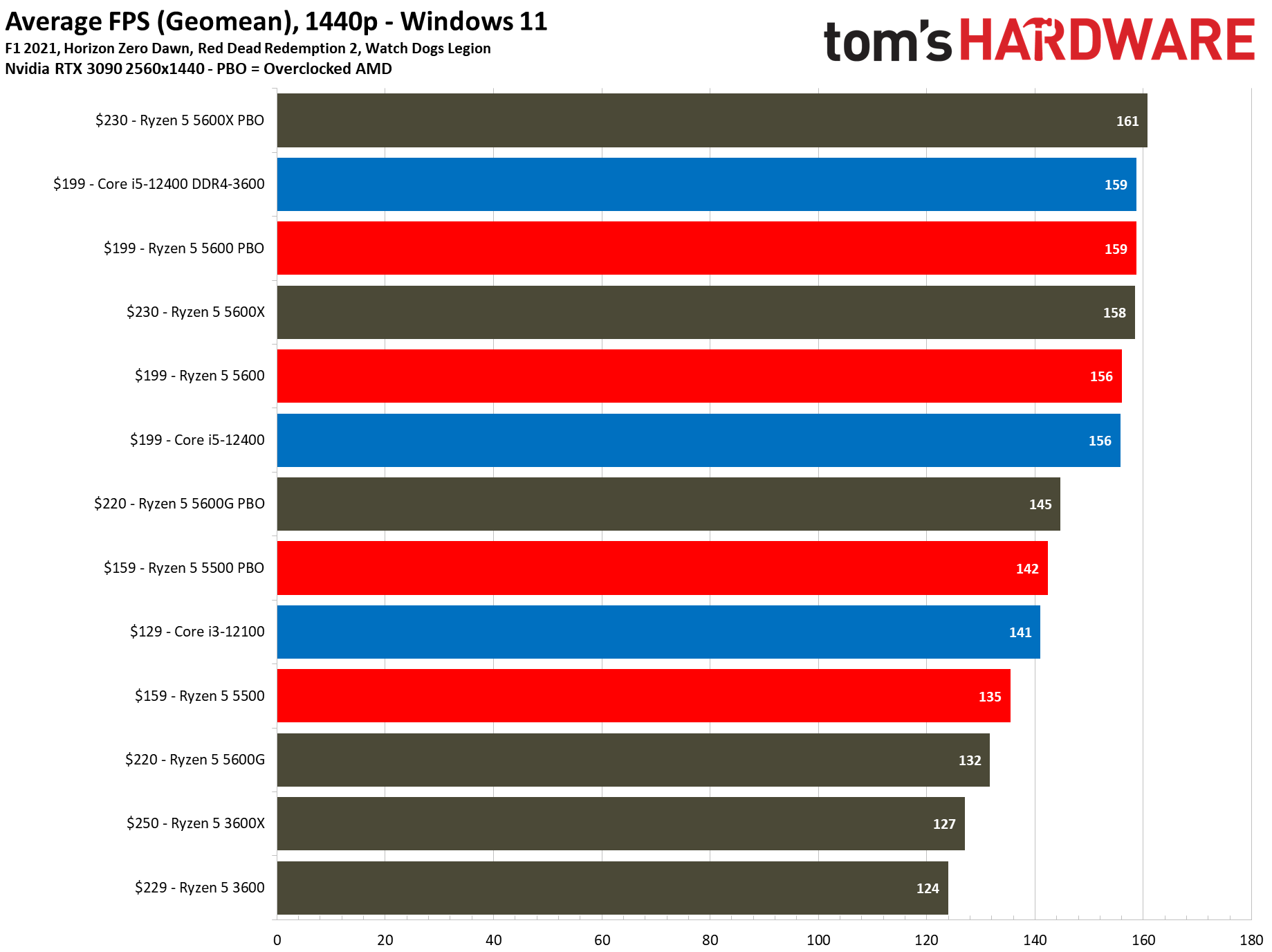
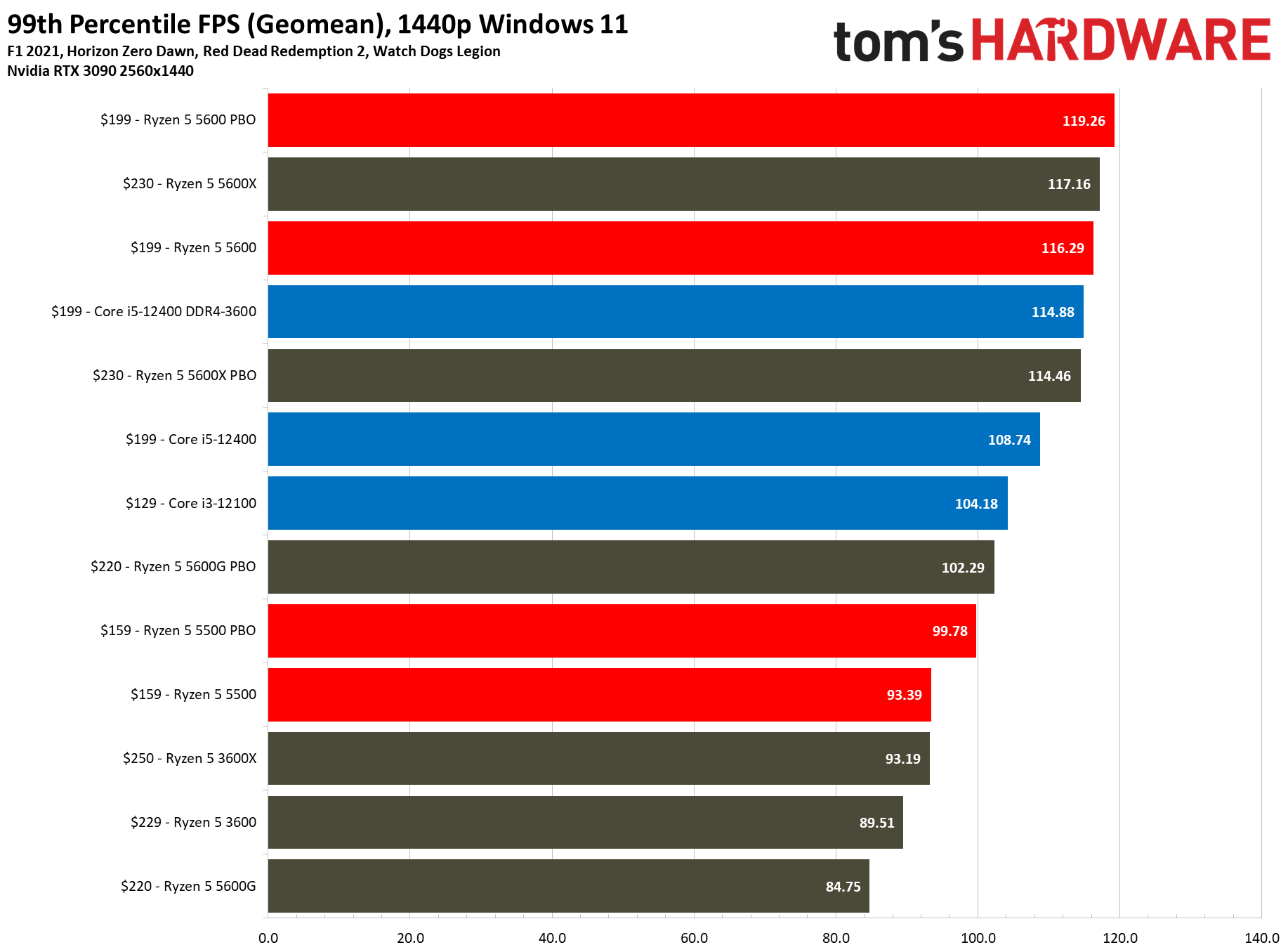
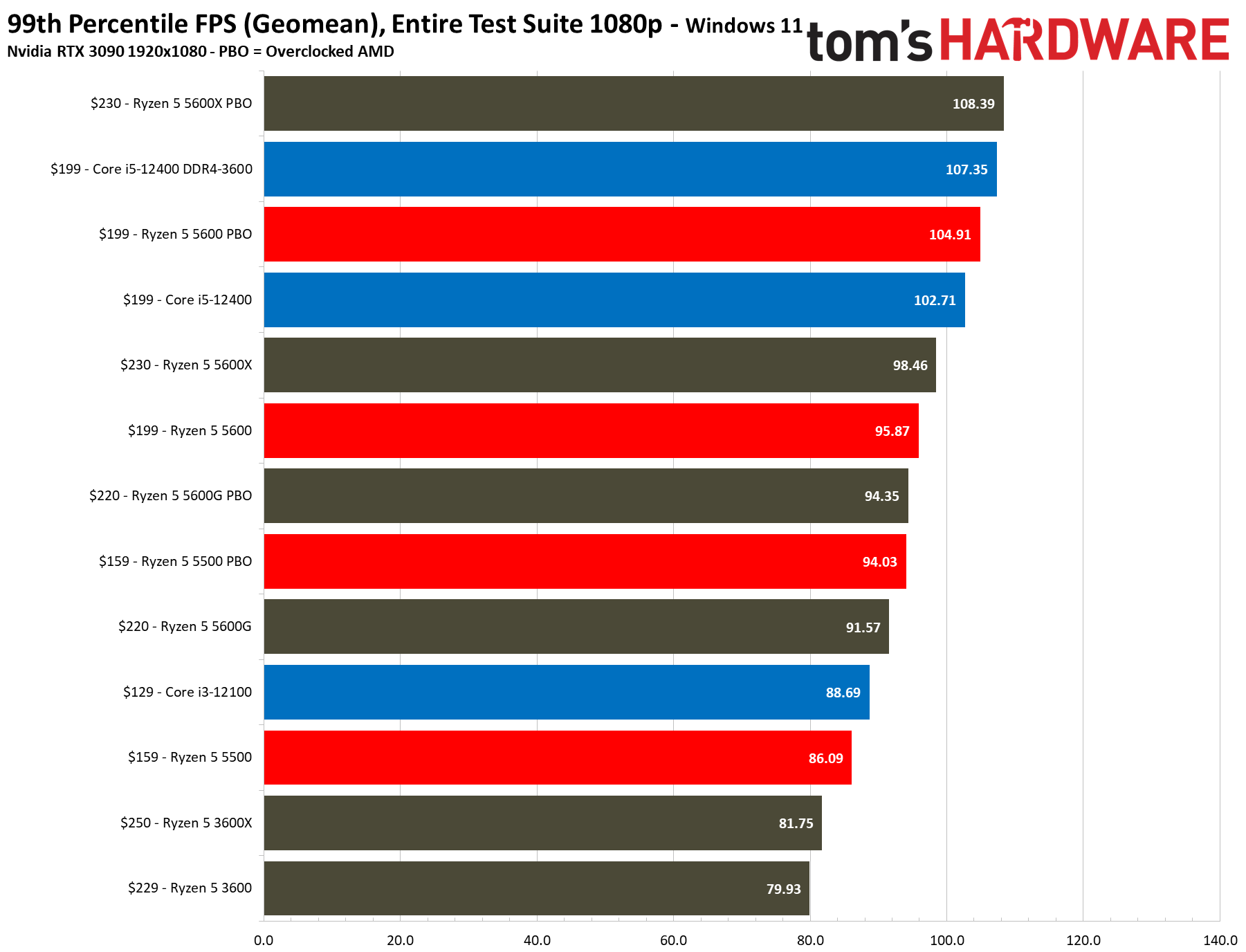
At stock settings, the Core i5-12400 is 2% faster than the Ryzen 5 5600 in our overall measurement of 1080p gaming performance, which is a slim victory. After overclocking, the 12400 is 3.9% faster than the Ryzen 5 5600 and ties the 5600X for the overall lead.
The Ryzen 5 5600 is basically a 5600X-killer — it doesn't make sense to spend the extra cash for such slim gains. Both the 12400 and the 5600 retail for $199, and that's a tough position for the Ryzen 5 5600 given its aging AM4 platform with less sophisticated connectivity. Additionally, you could choose the graphics-less 12400F that offers the same performance as the full-featured model for ~$175, helping reduce the extra costs associated with Alder Lake motherboards.
The Ryzen 5 5500 falls within 2 percent of the Ryzen 5 5600G in the 1080p benchmarks, but it isn't as much of a closely-contested battle against the Intel chips. The less-expensive $129 Core i3-12100 is 6.2% faster in gaming at stock settings than the $159 Ryzen 5 5500, and basically ties the overclocked 5500 without any effort.
If gaming is all you're interested in, the Core i3-12100 is the better buy with a much more modern platform — the 5500 is limited to the PCIe 3.0 interface. However, the Ryzen 5 5500 will have advantages for the productivity-minded, as we'll see in the application benchmarks.
Both the new Ryzen chips offer a tremendous step forward over their Zen 2 predecessors. The Ryzen 5 5500 is roughly 10% faster than the Ryzen 5 3600X and 3600, while the Ryzen 5 5600 is ~30% faster, representing a massive generational improvement.
| Tom's Hardware | 1080p Game Benchmarks - fps %age |
| Core i5-12400 | 100% |
| Ryzen 5 5600X | 98.71% |
| Ryzen 5 5600 | 98.1% |
| Core i3-12100 | 88.4% |
| Ryzen 5 5600G | 84.5% |
| Ryzen 5 5500 | 83.2% |
Naturally, moving over to 1440p brings a GPU bottleneck into the equation, so the performance deltas between the chips shrink tremendously. Flipping through the 99th percentile charts for both resolutions also shows larger deltas, but we have to view those with caution as Windows 11 seems to suffer from more framerate variability than our Windows 10 test platform.
Be aware that large performance deltas in a few of the game titles can heavily impact these types of overall measurements. It's always best to make an informed decision based on the types of titles you play frequently, so be sure to check out the individual game benchmarks below.
3DMark, VRMark, Chess Engines on AMD Ryzen 5 5600 and 5500
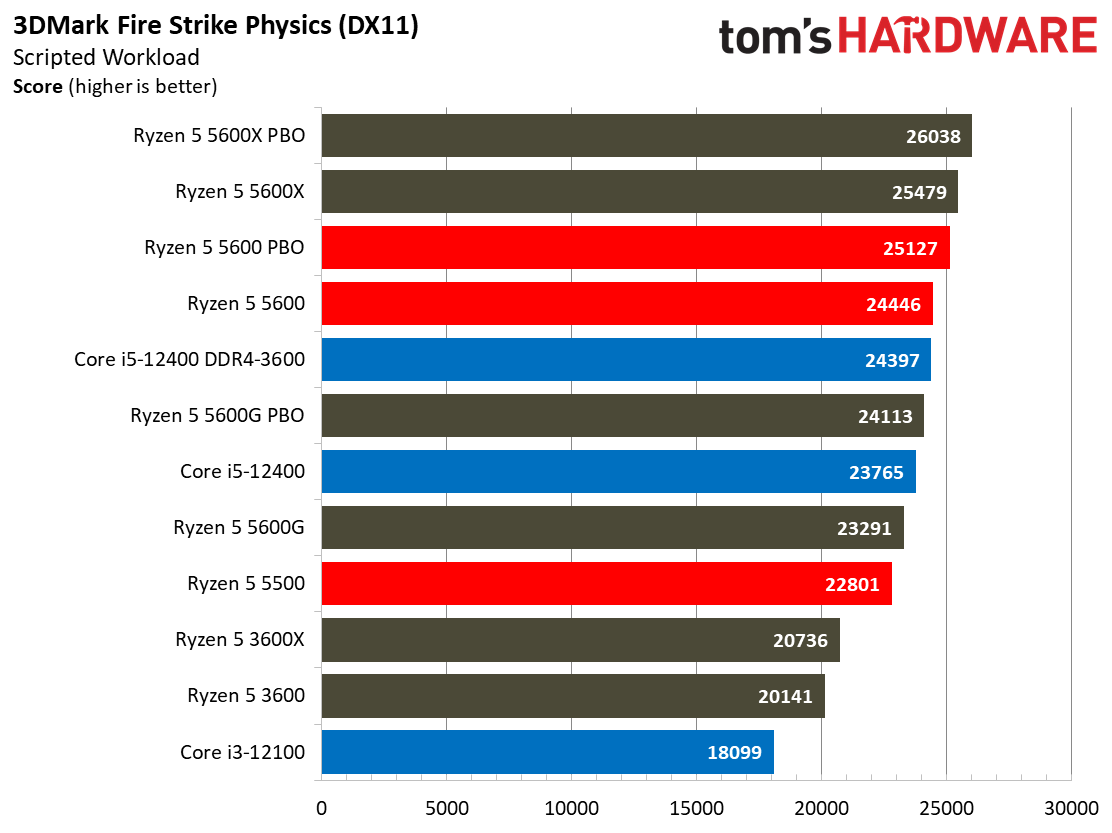
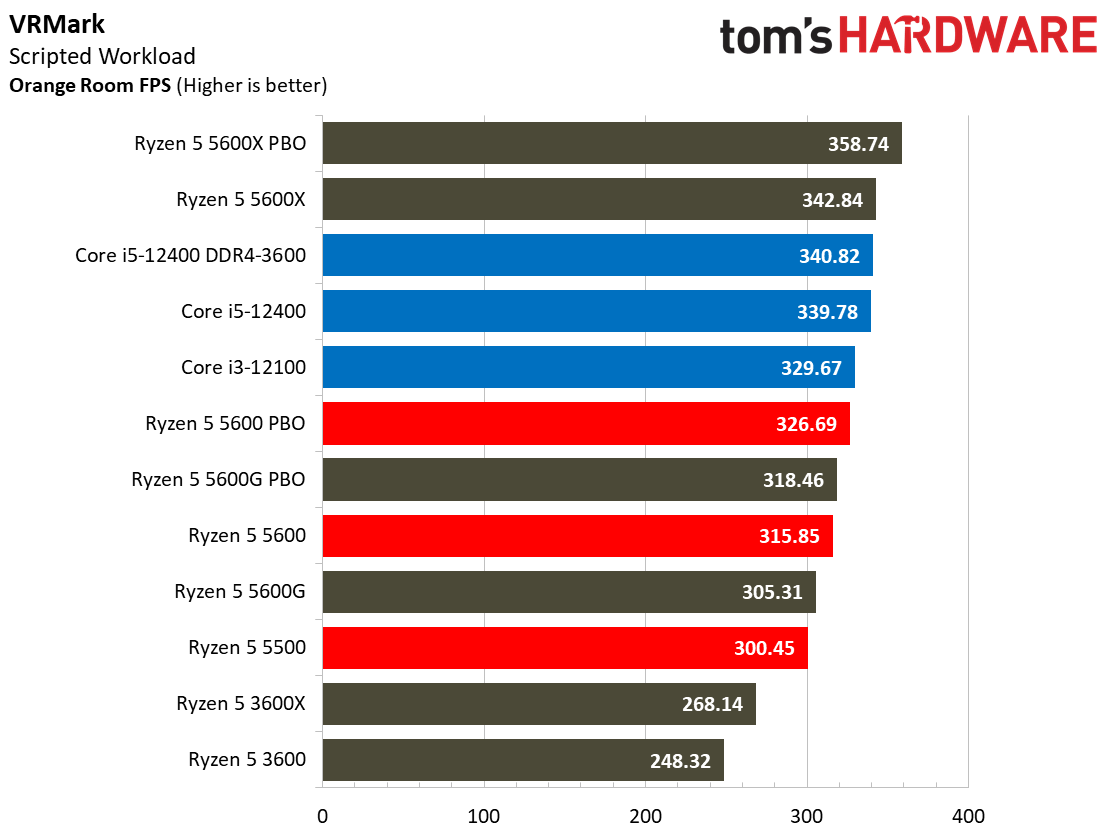
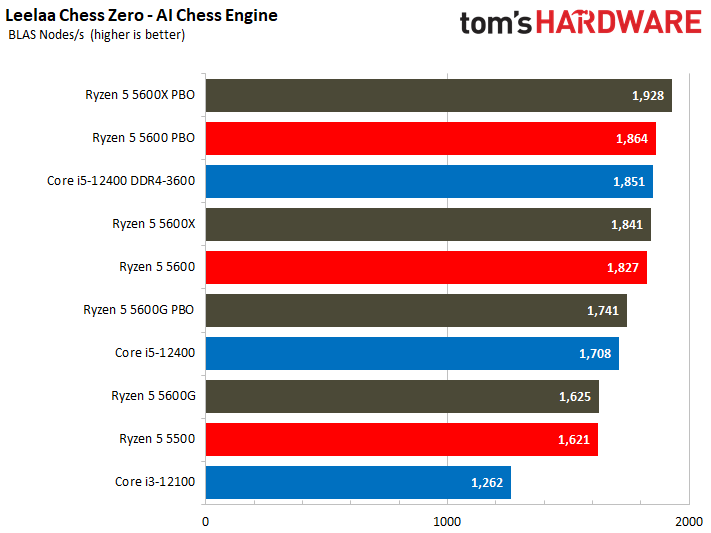
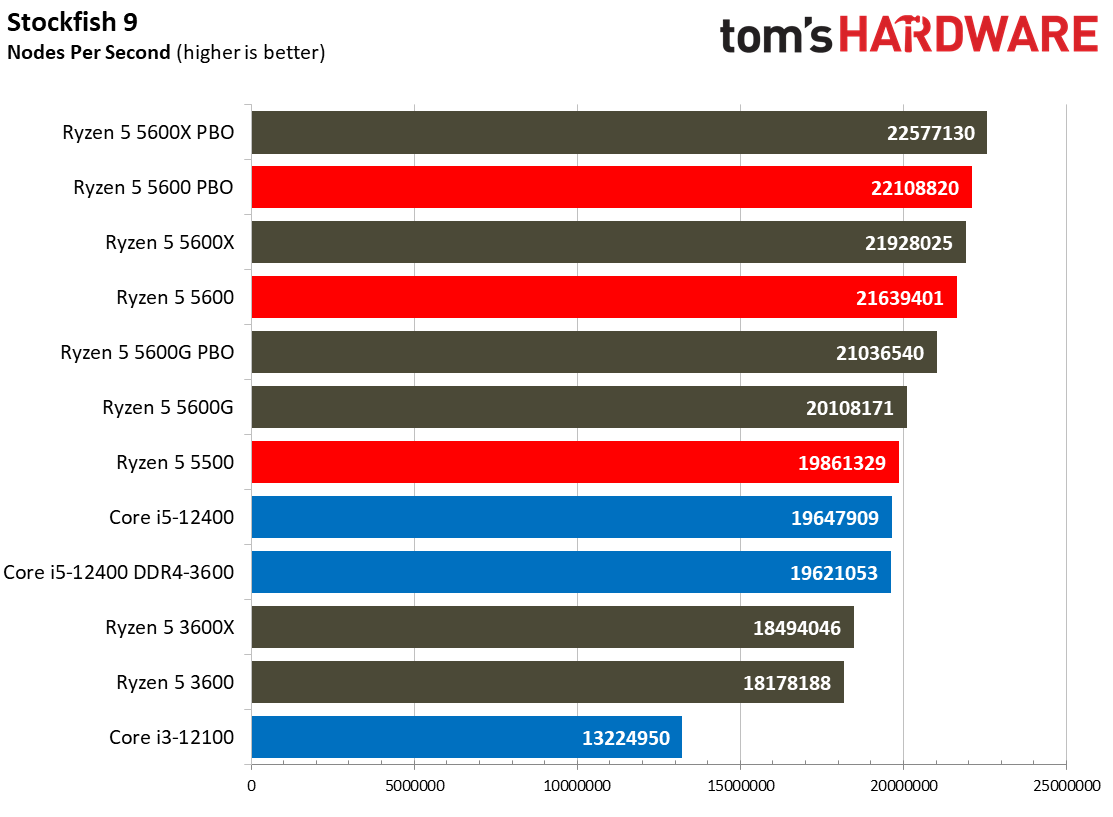
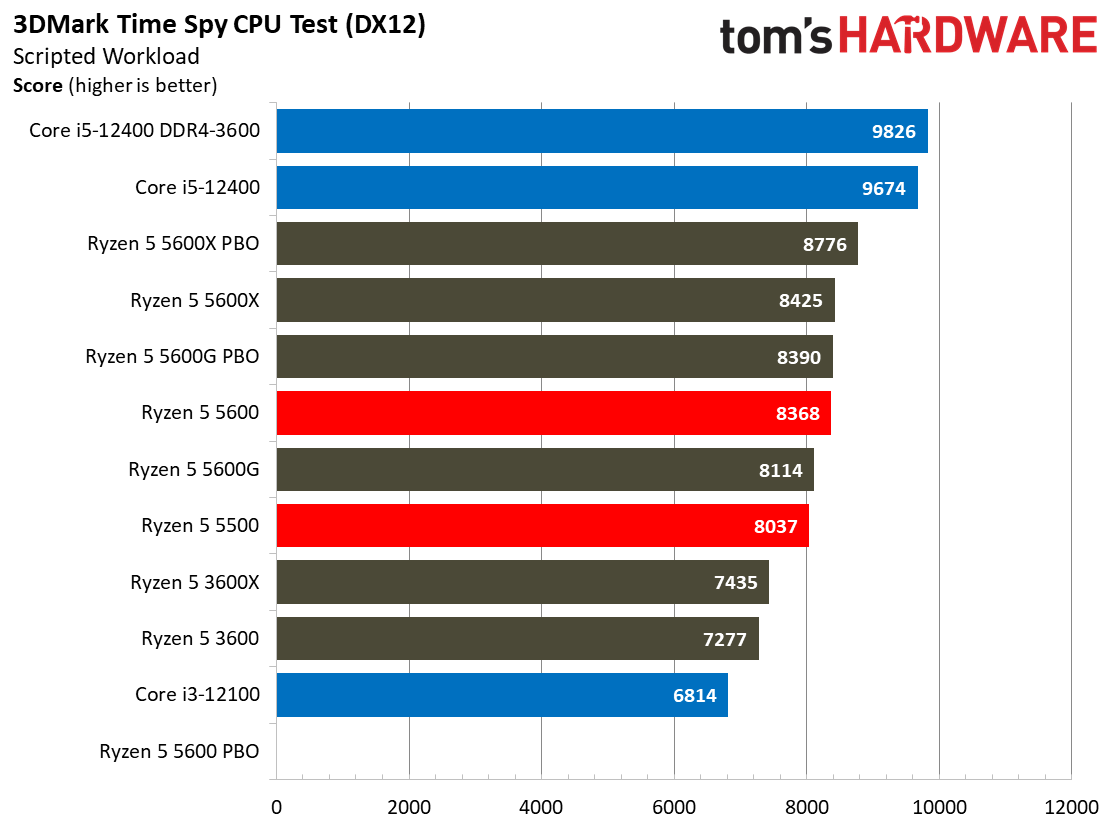
Synthetic benchmarks don't tend to translate well to real-world gaming, but they do show us the raw amount of compute power exposed to game engines. It's too bad most games don't fully exploit it.
Far Cry 6 on AMD Ryzen 5 5600 and 5500
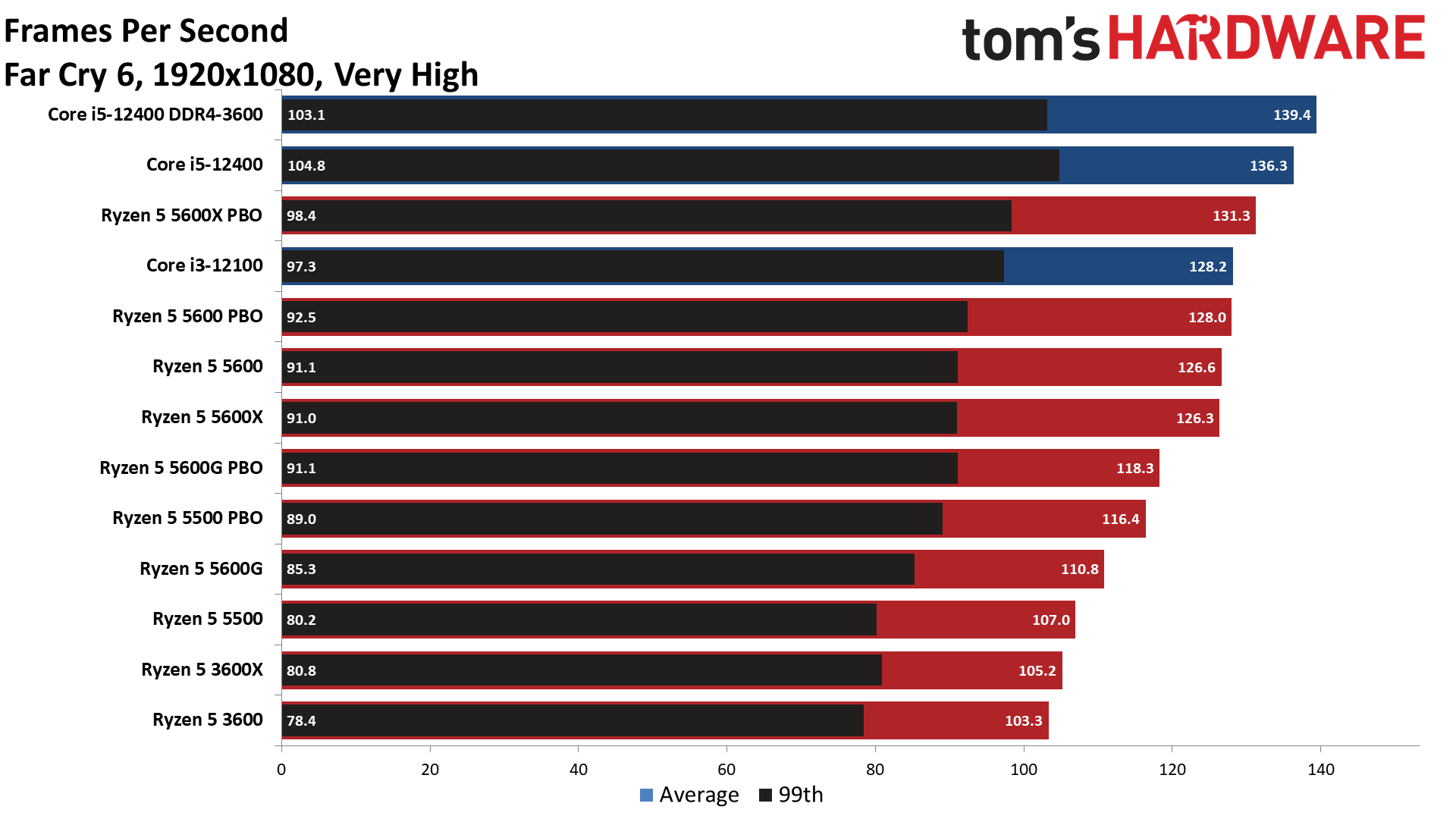
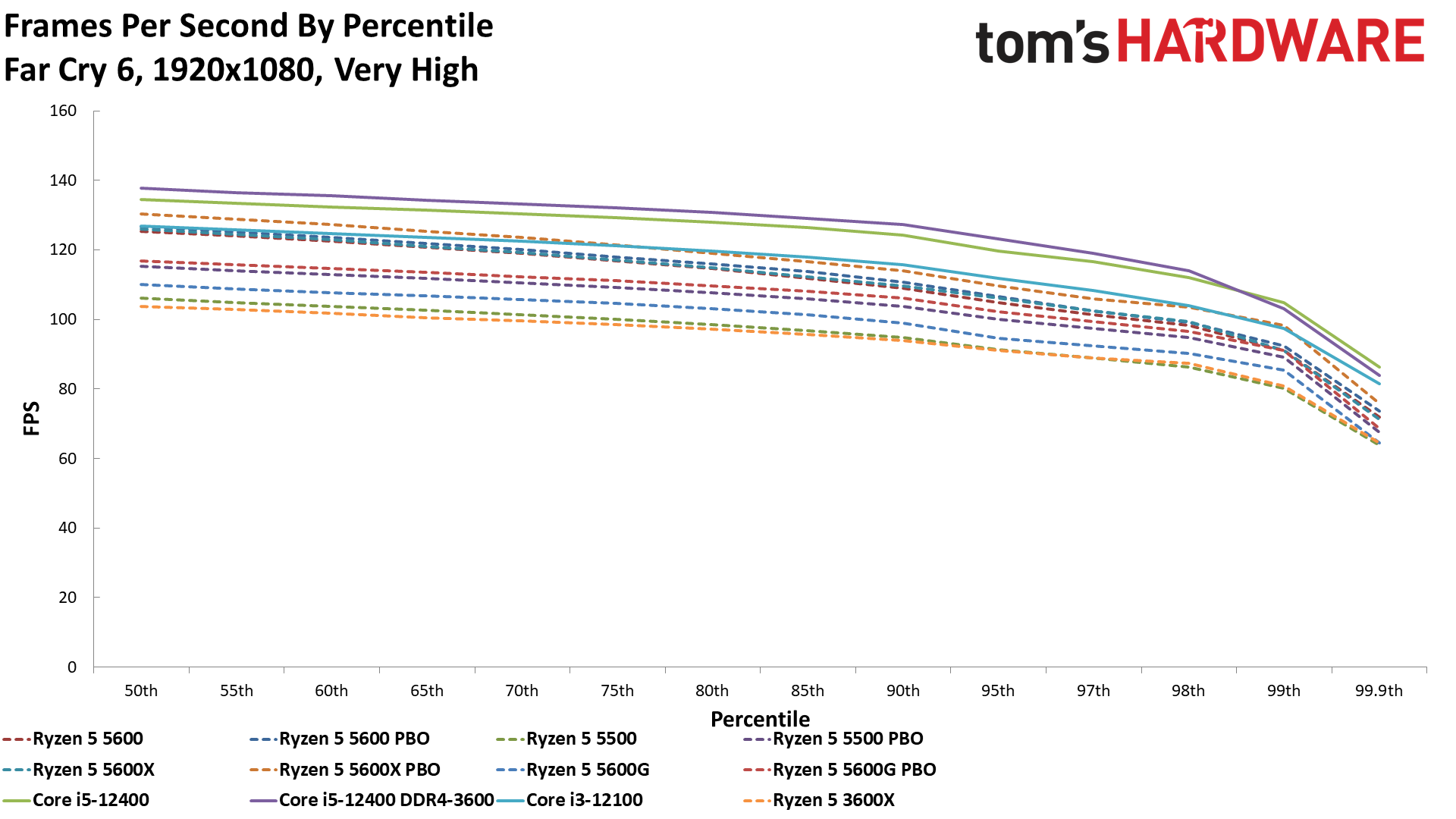
F1 2021 on AMD Ryzen 5 5600 and 5500
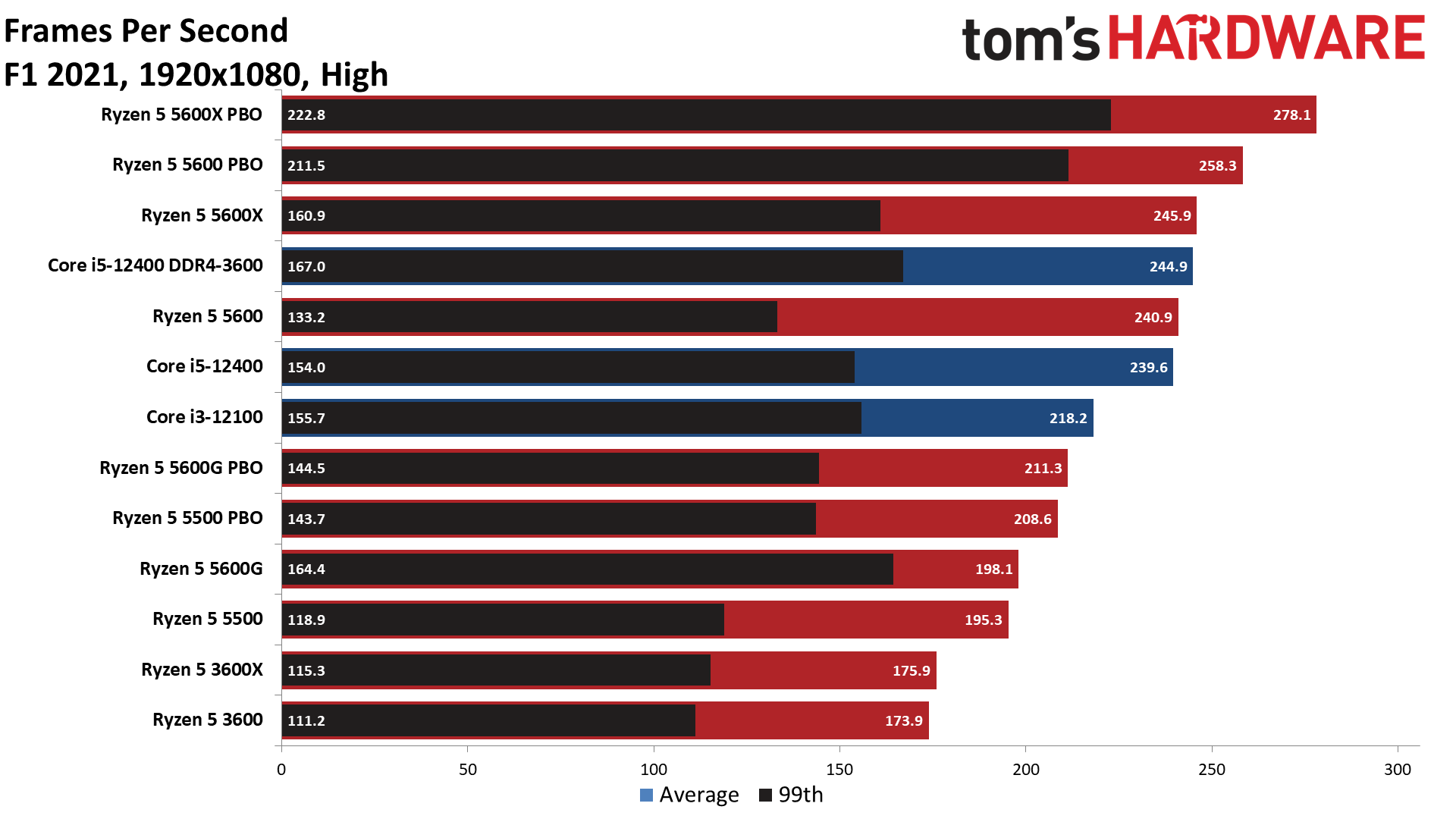
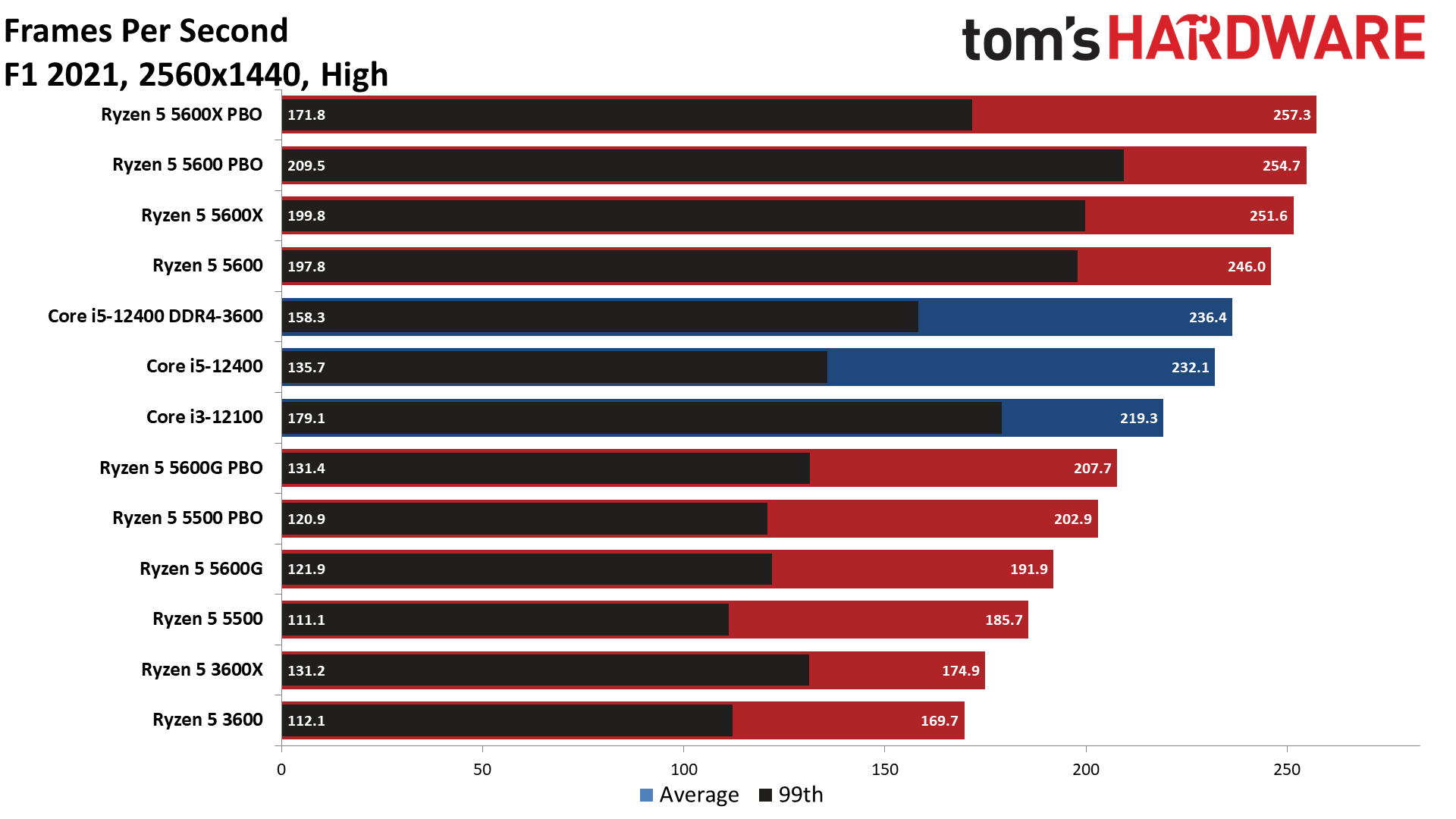
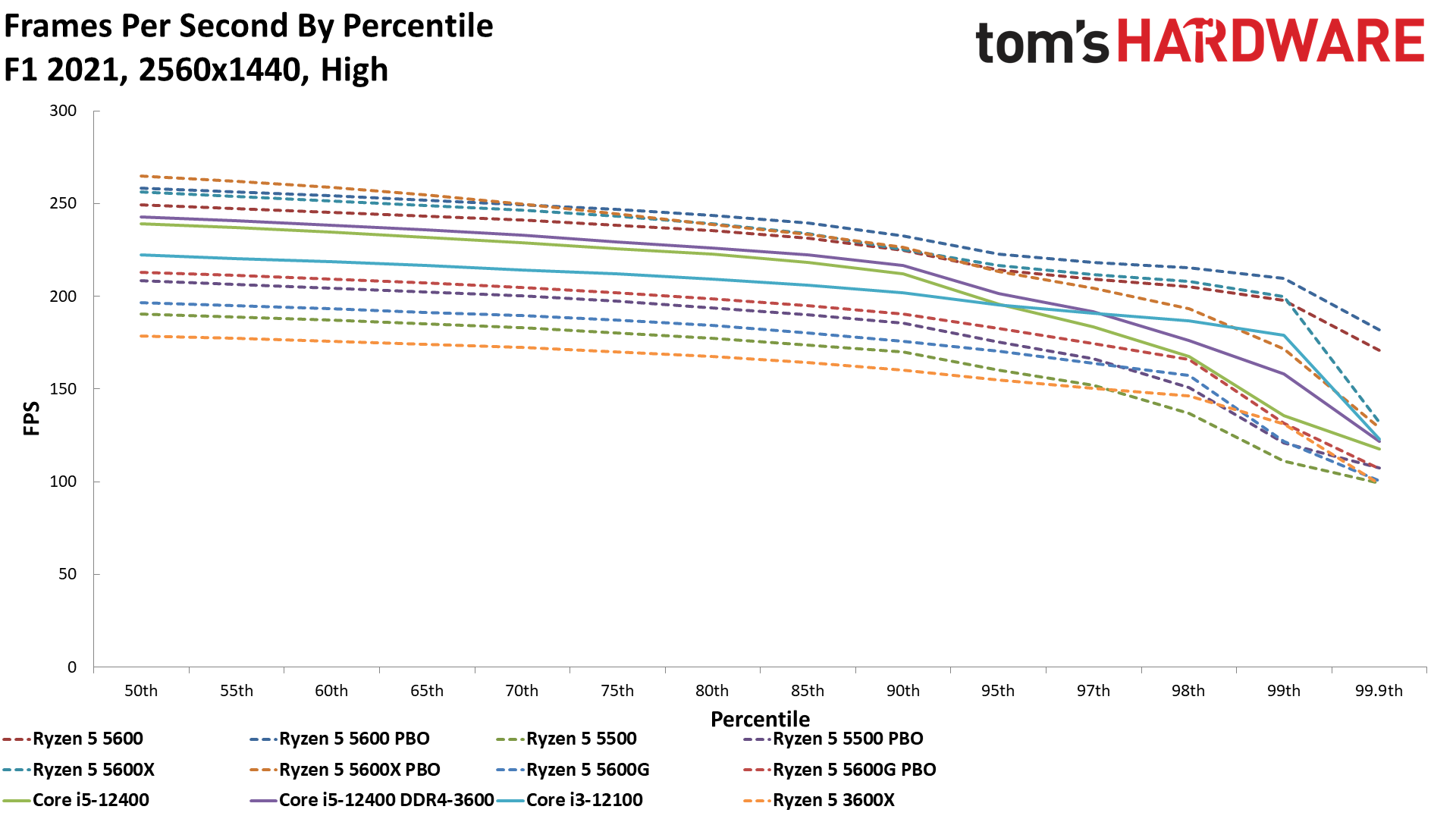
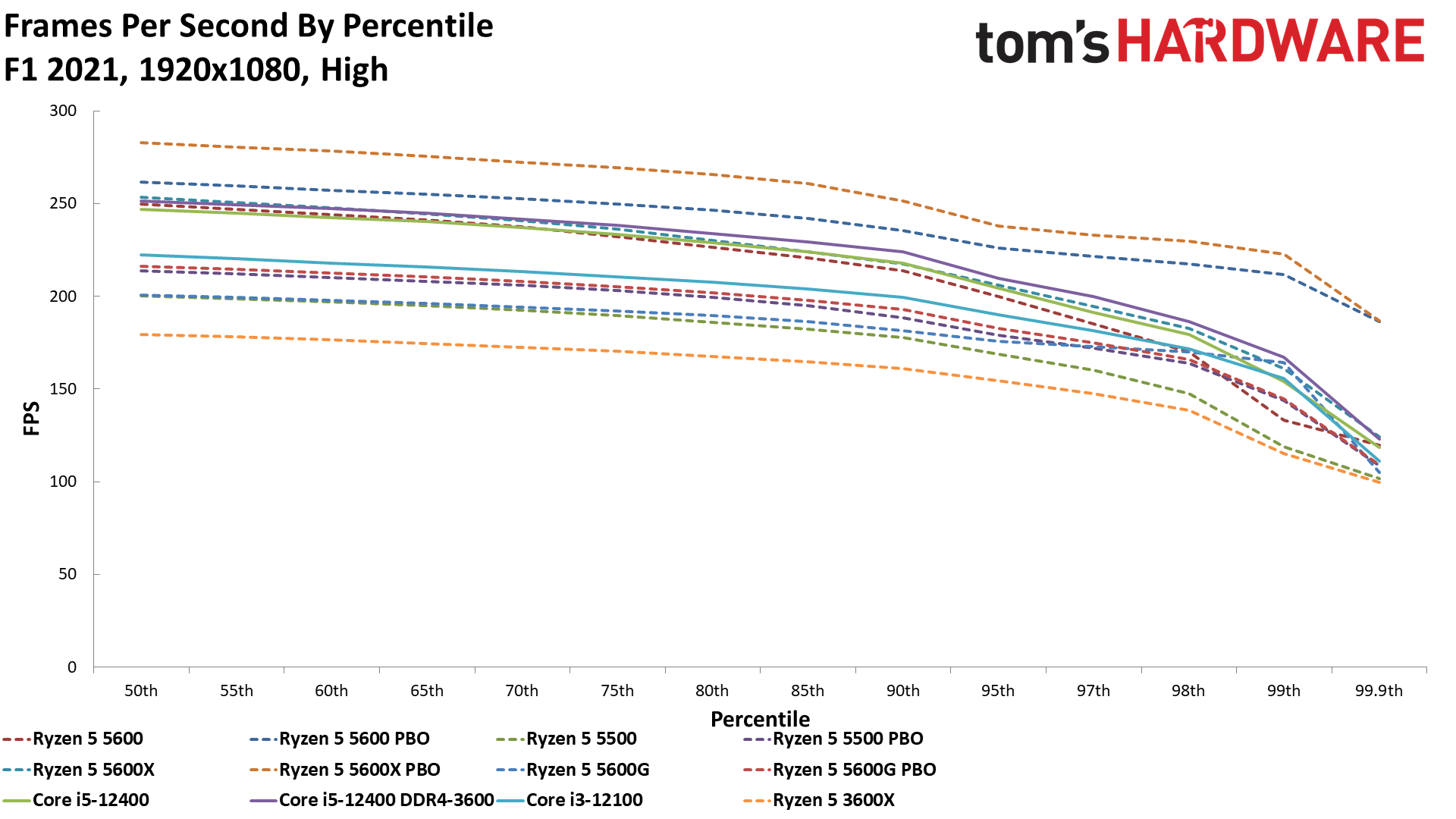
Hitman 3 on AMD Ryzen 5 5600 and 5500
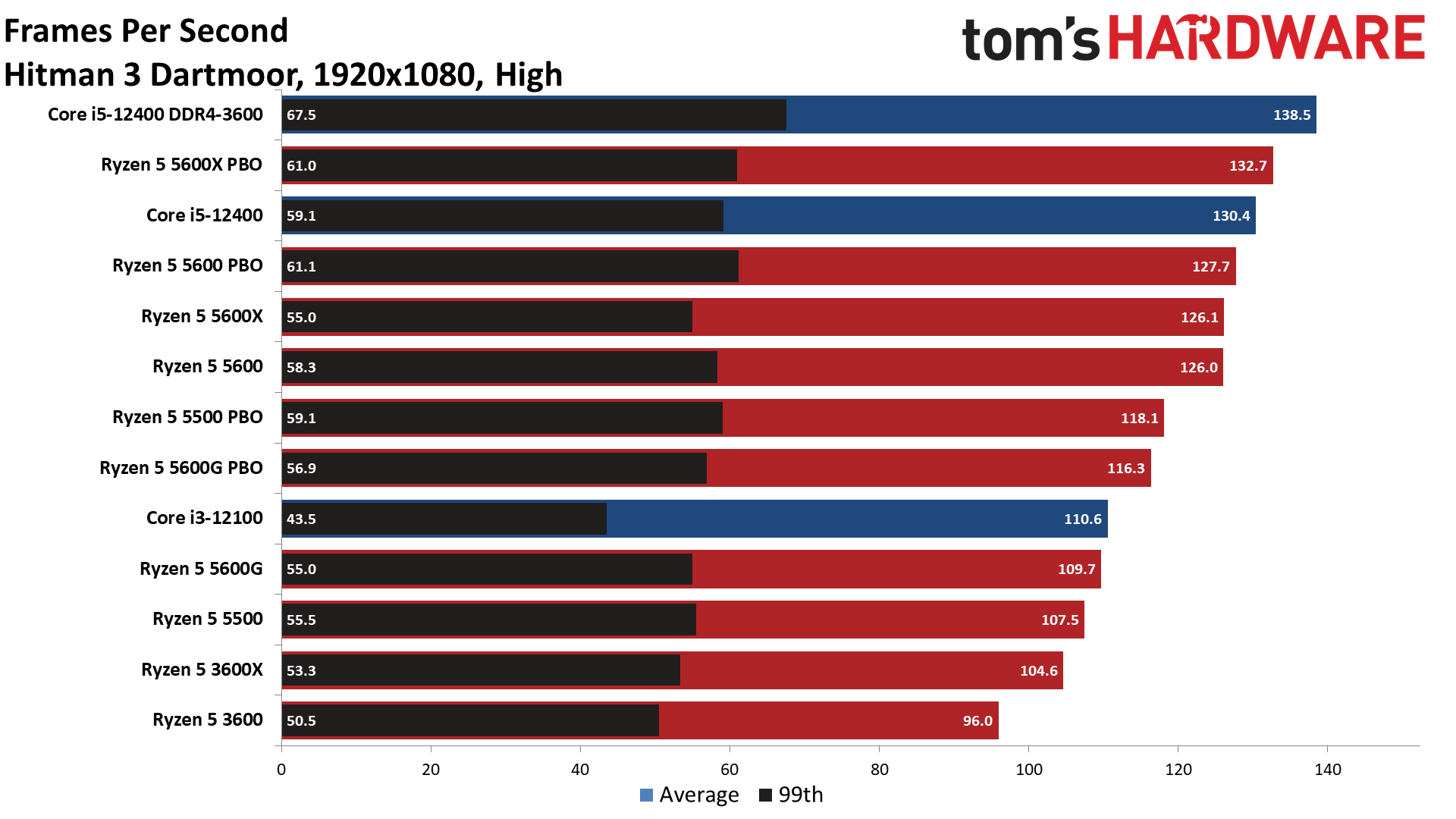
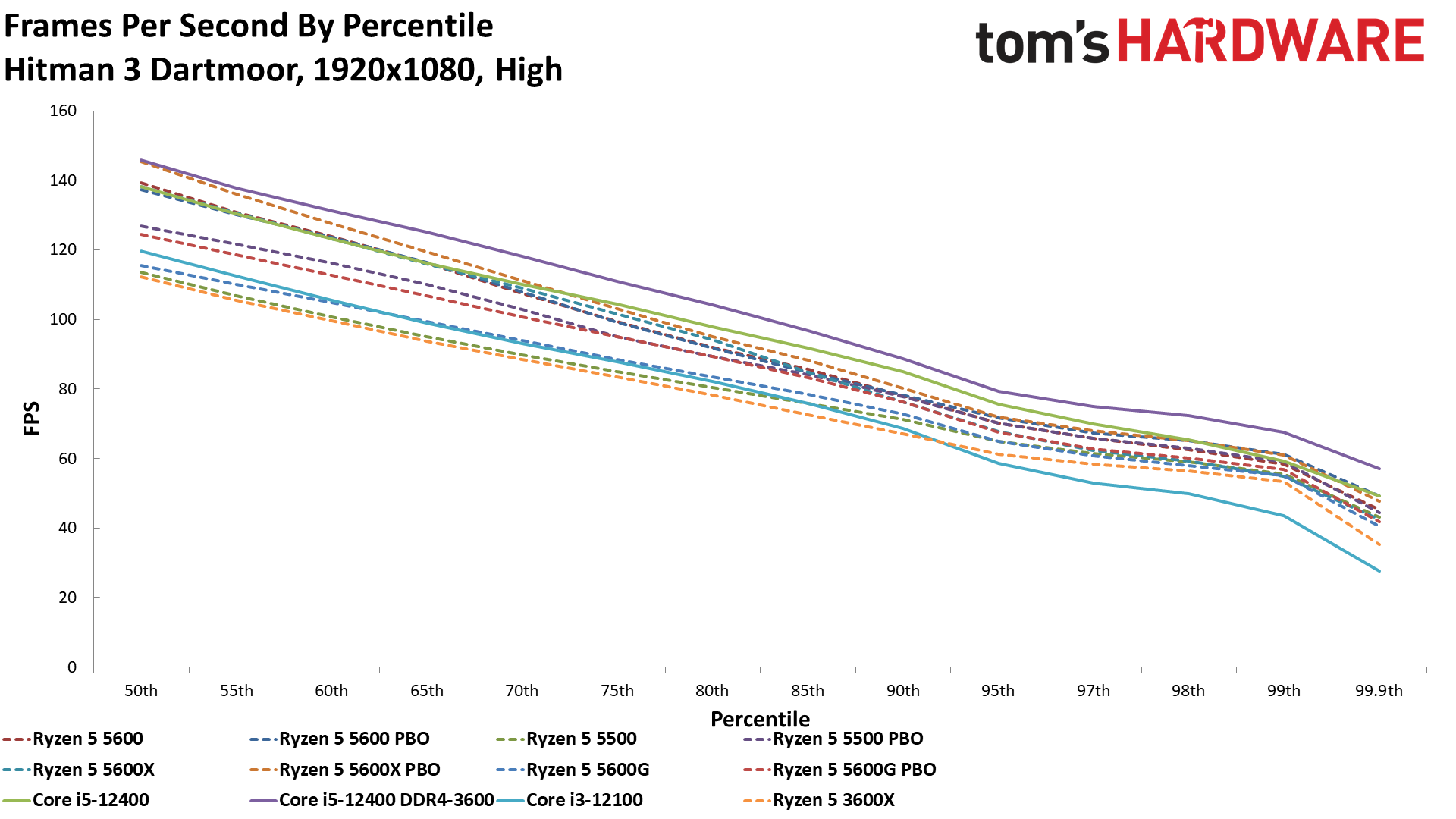
Horizon Zero Dawn on AMD Ryzen 5 5600 and 5500
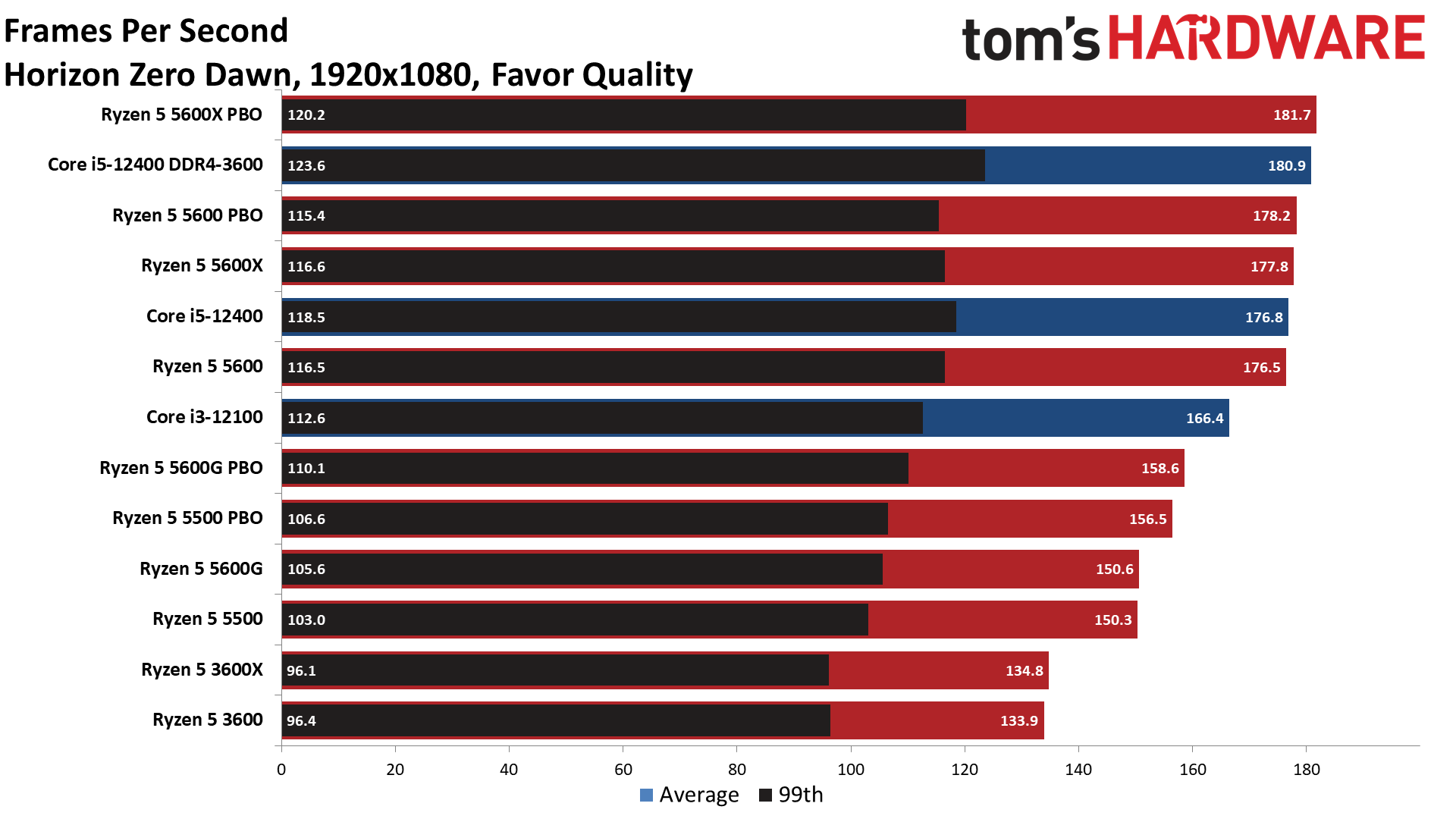
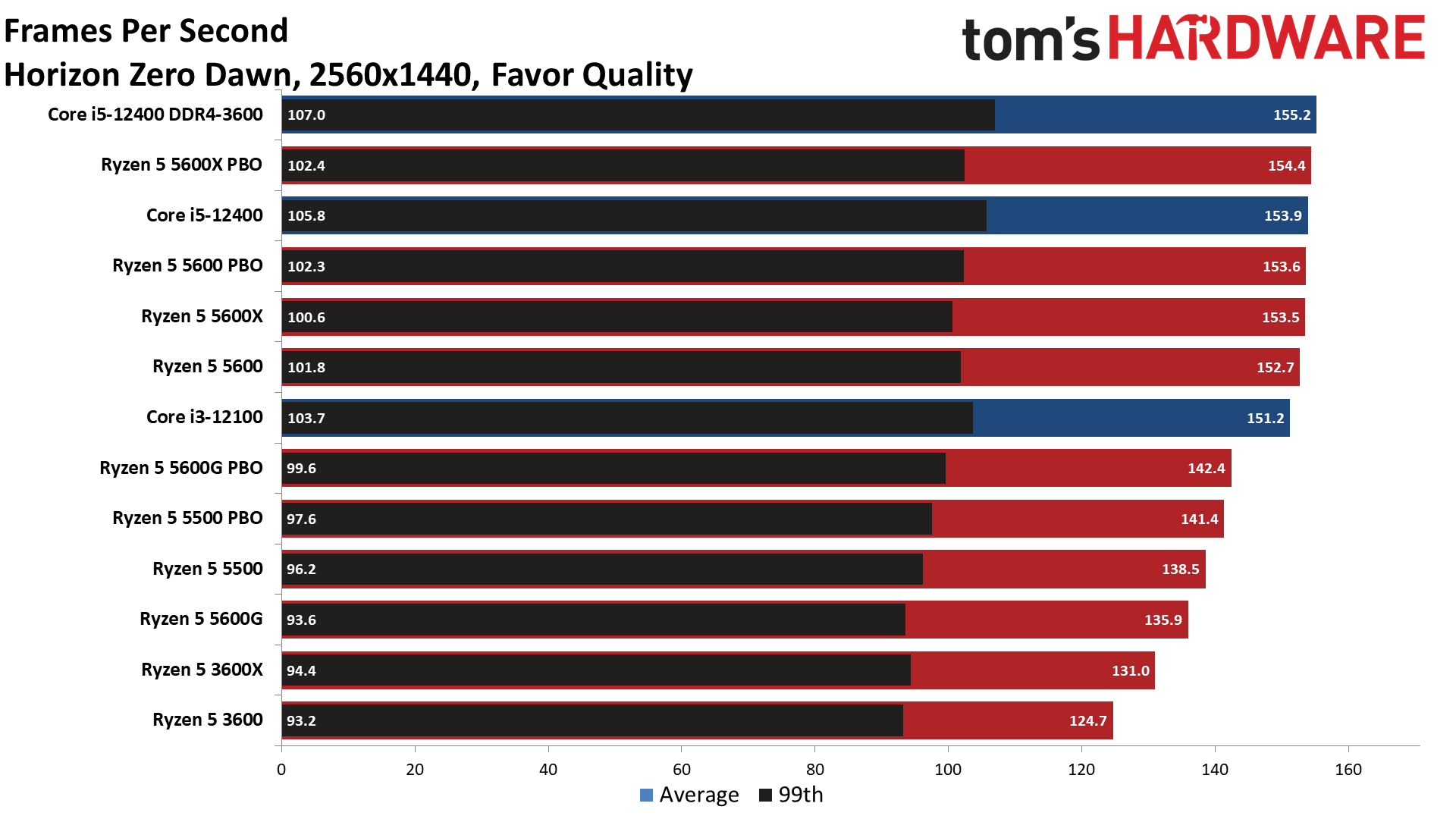
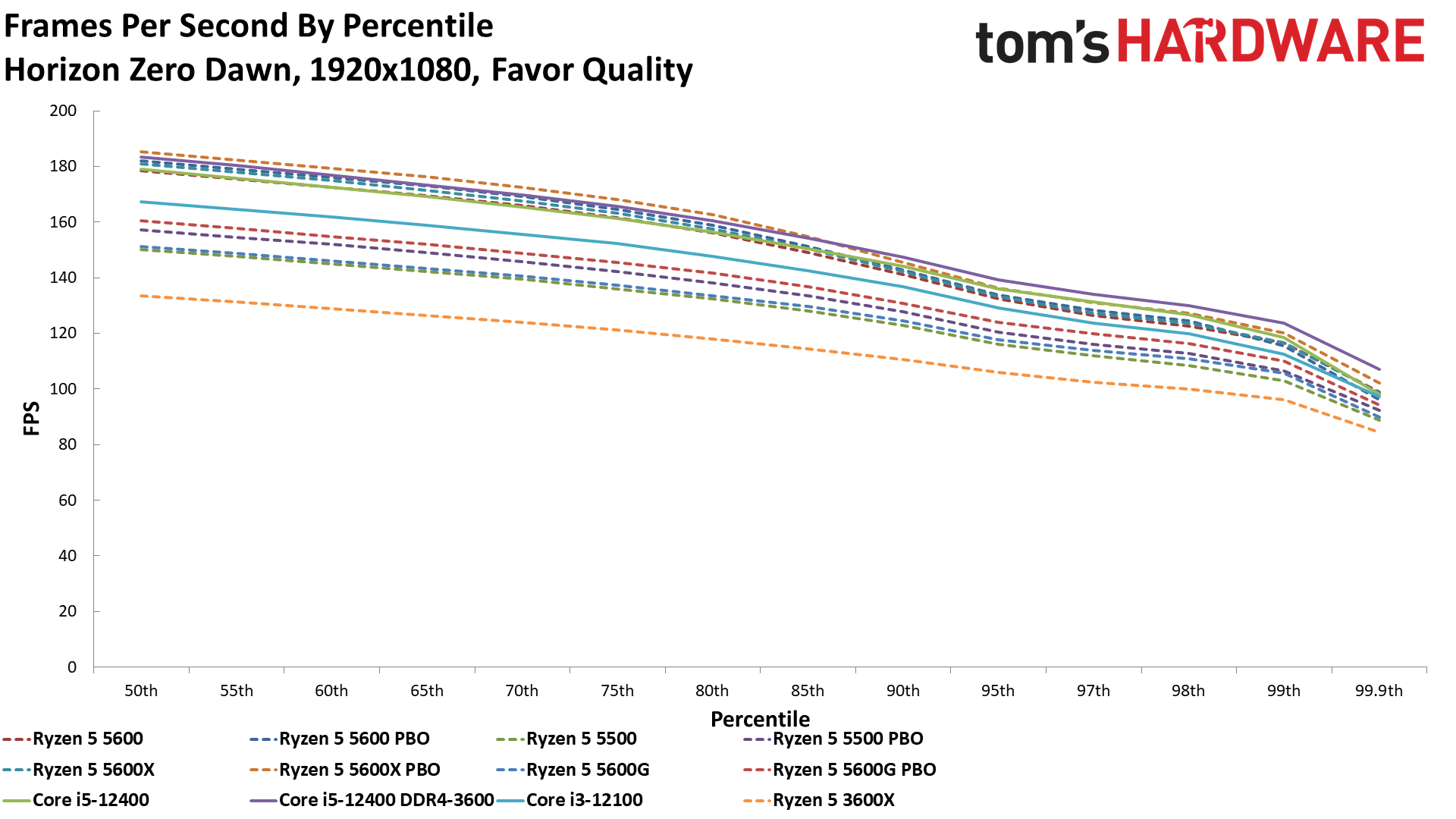
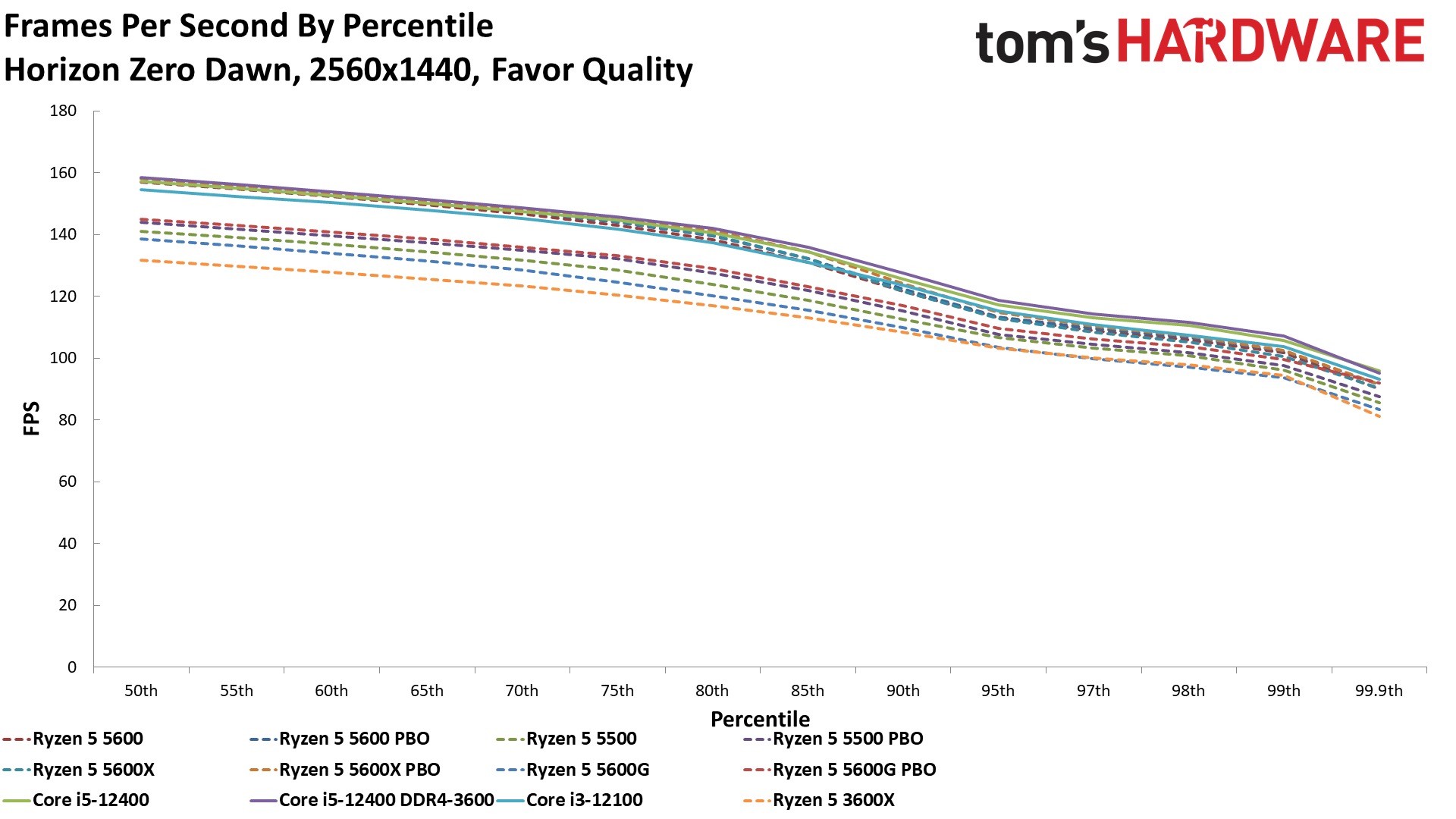
Red Dead Redemption 2 on AMD Ryzen 5 5600 and 5500
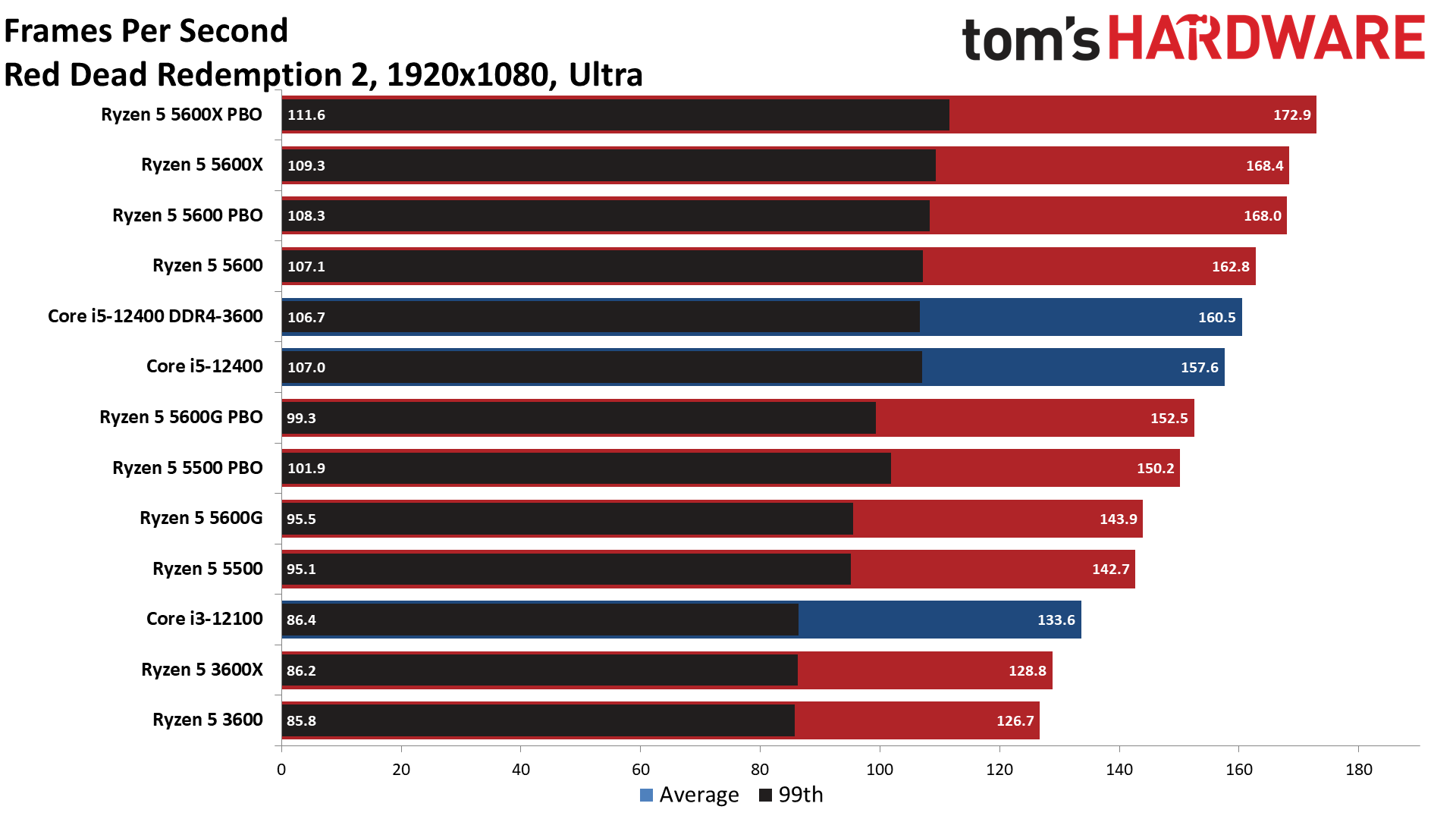
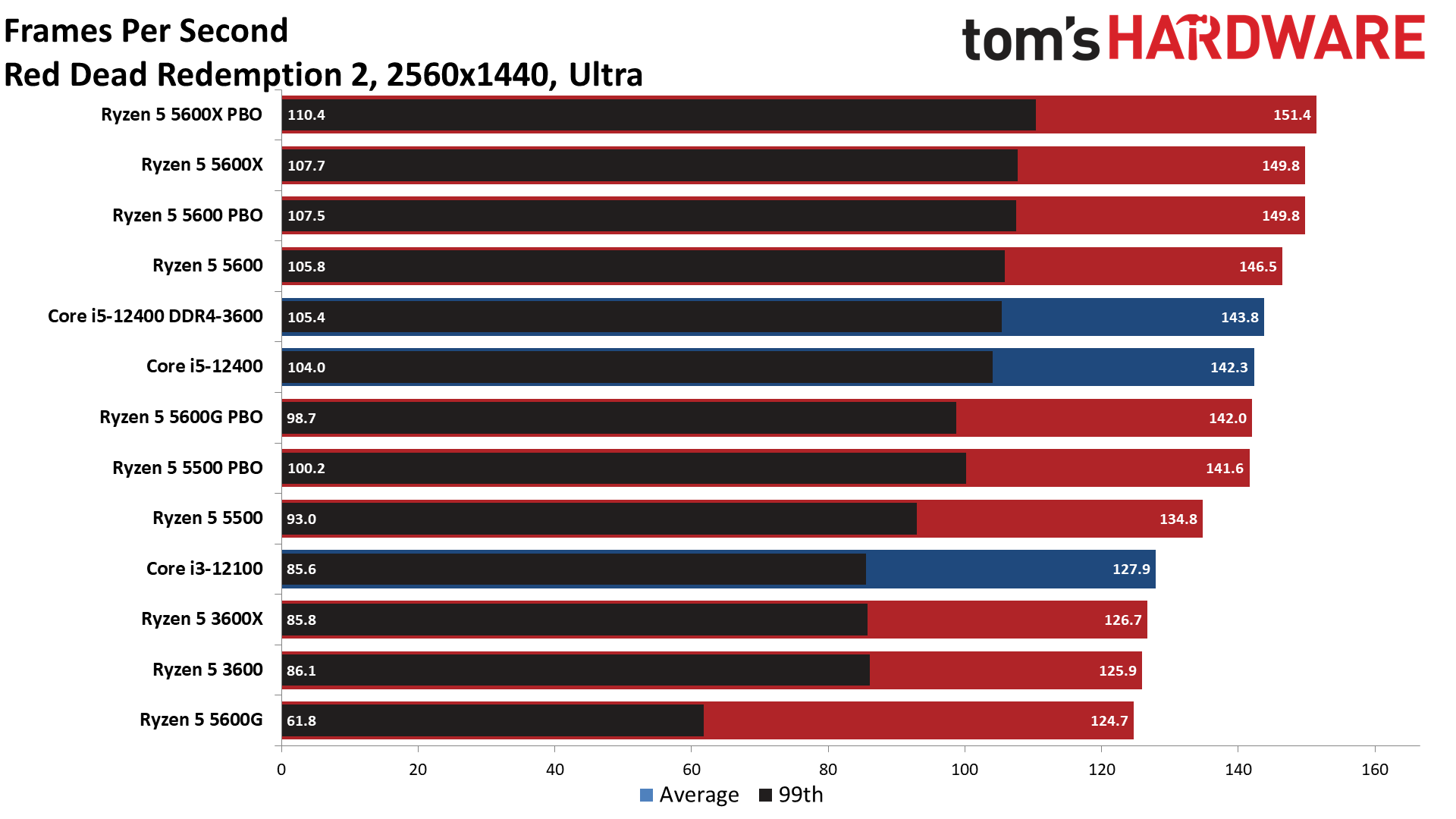
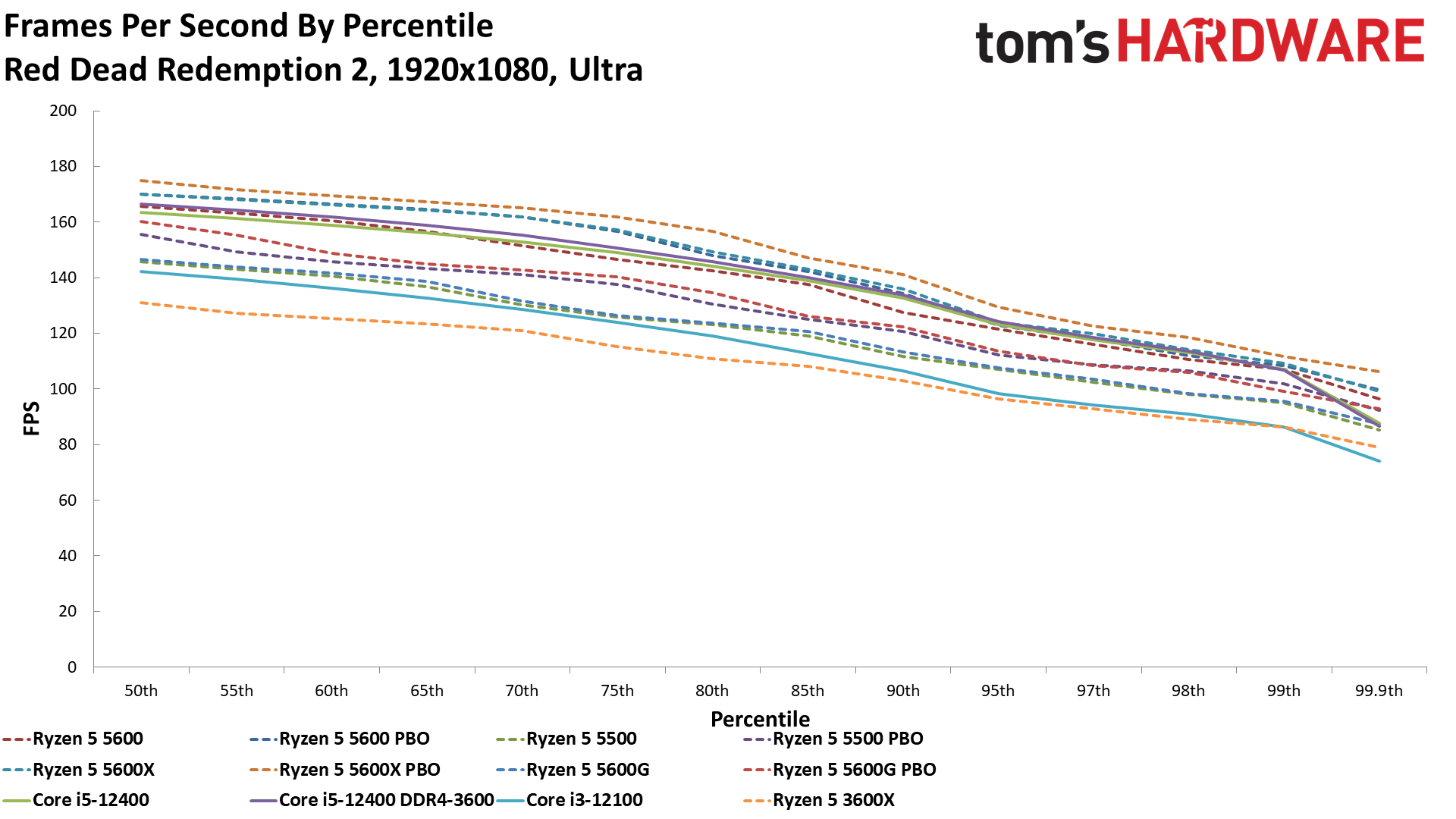
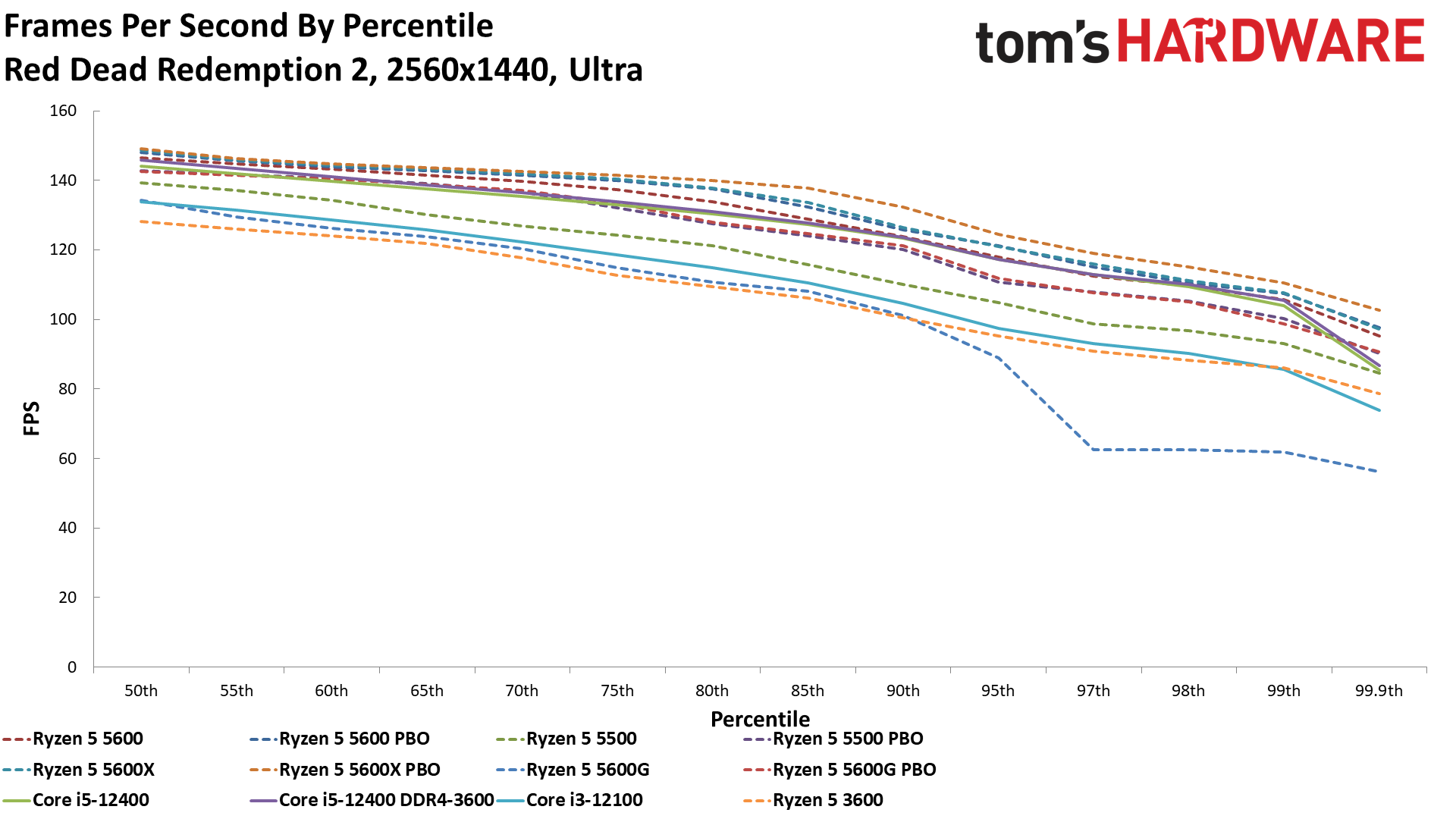
Watch Dogs Legion on AMD Ryzen 5 5600 and 5500
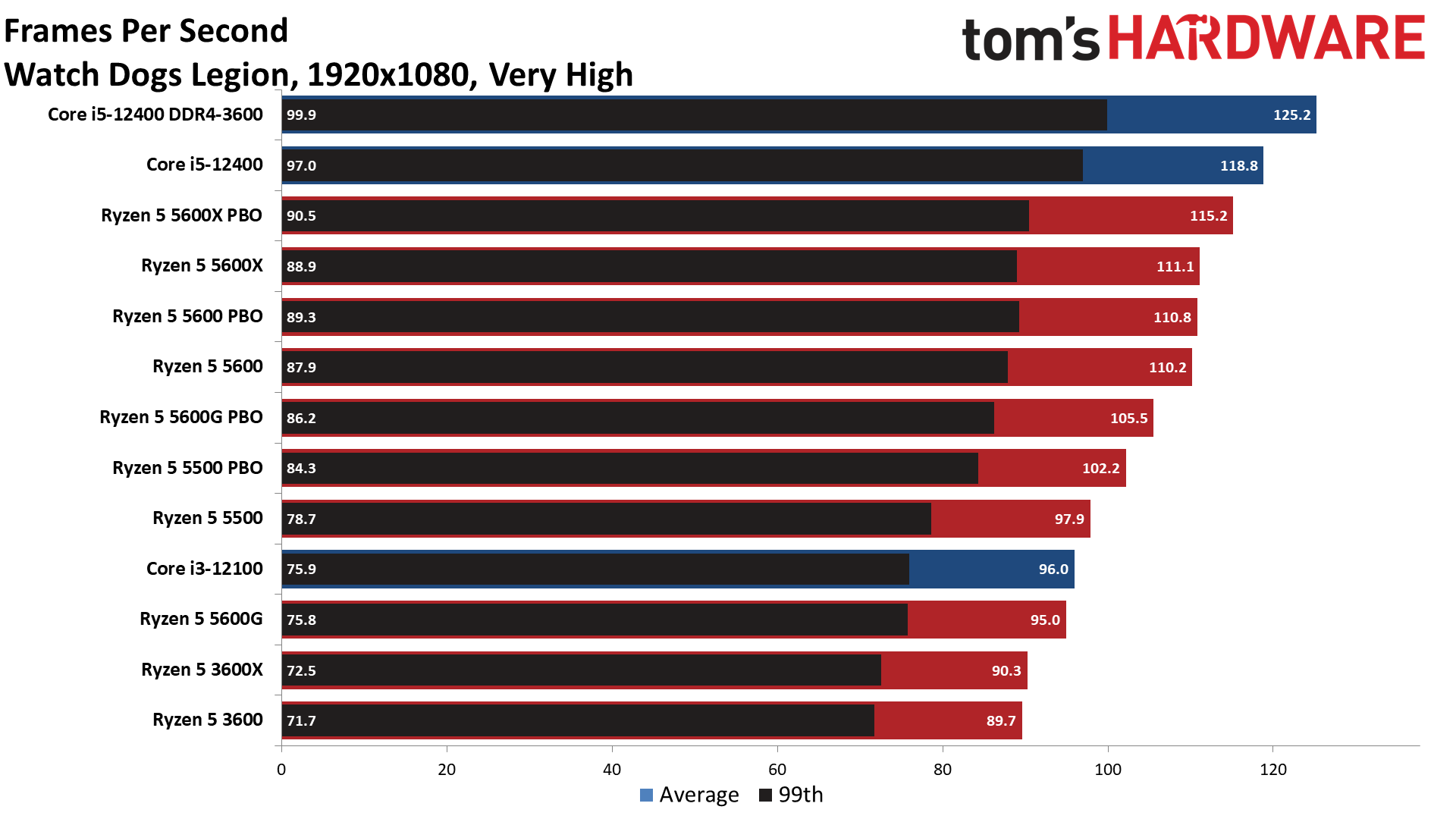
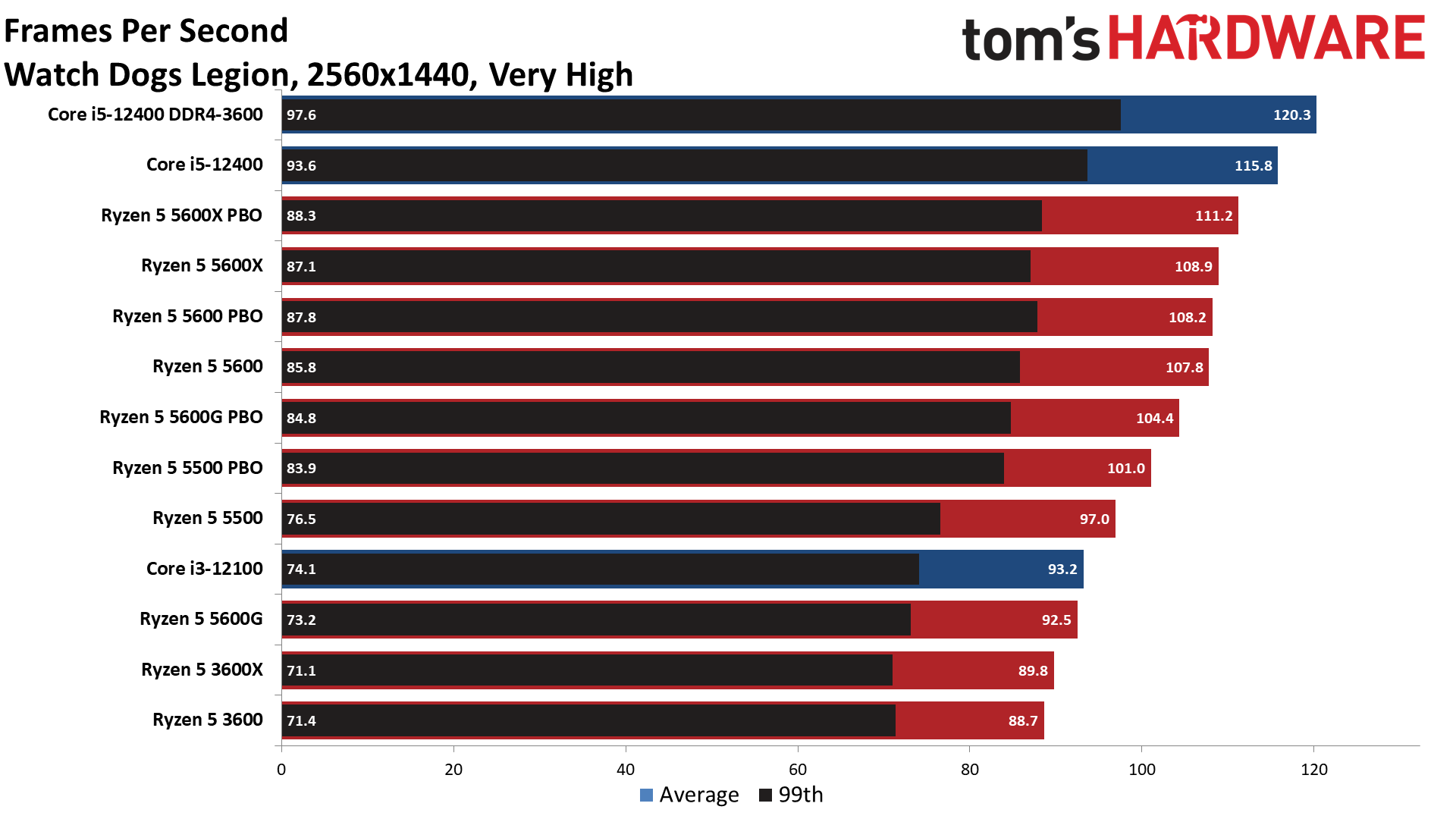
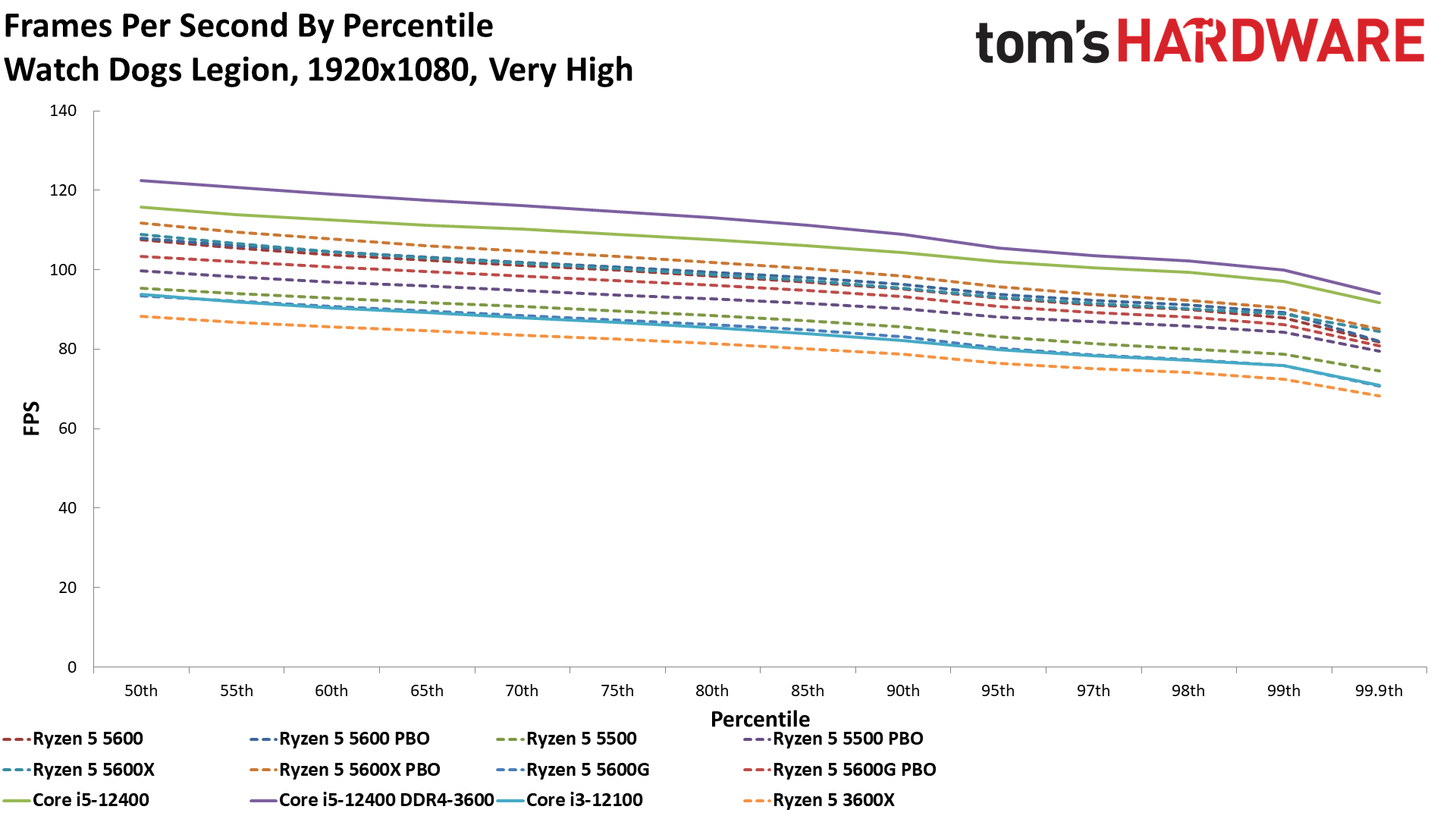
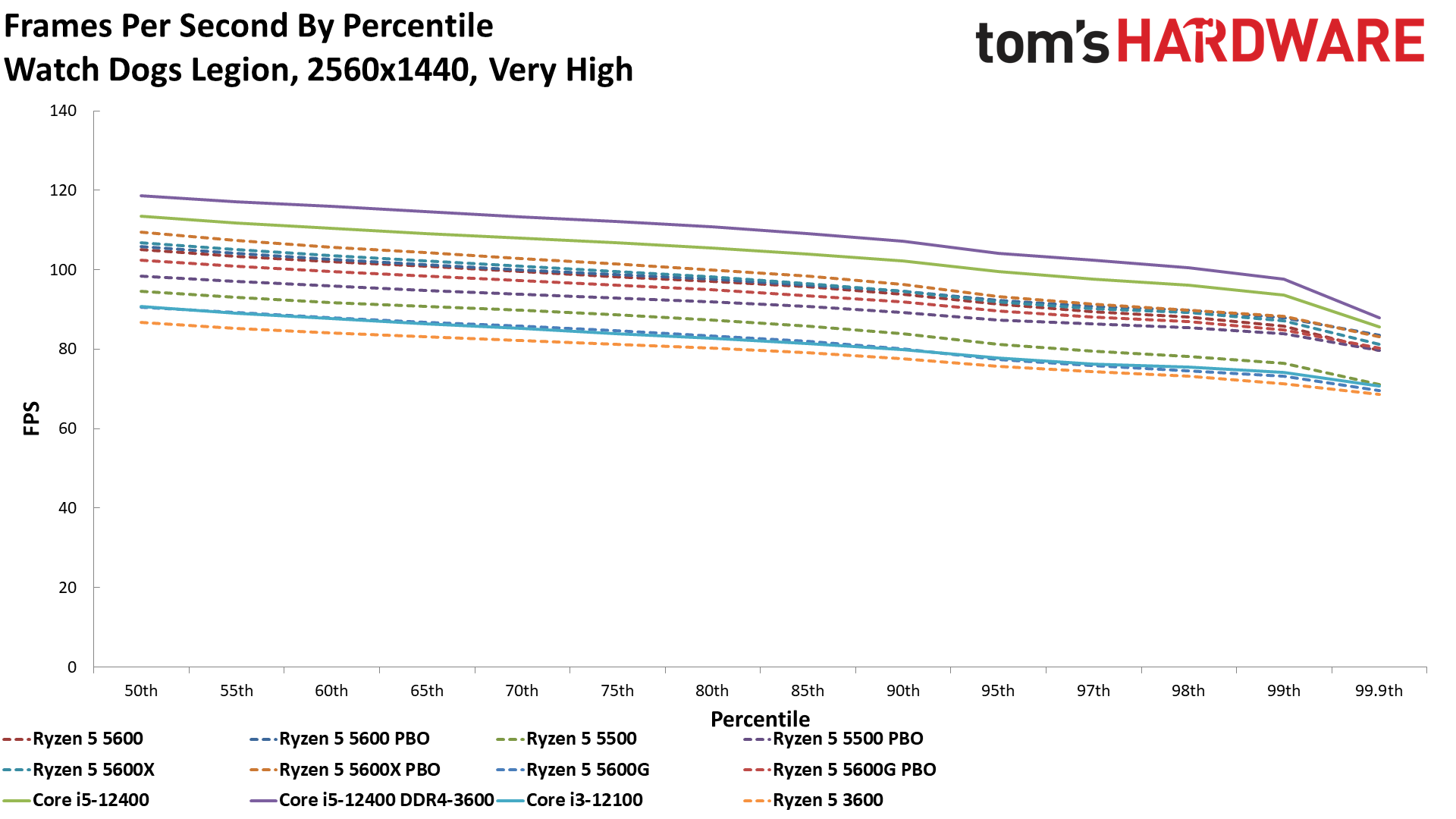
- MORE: Best CPUs for Gaming
- MORE: CPU Benchmark Hierarchy
- MORE: AMD vs Intel
- MORE: How to Overclock a CPU
Get Tom's Hardware's best news and in-depth reviews, straight to your inbox.
Current page: AMD Ryzen 5 5600 and 5500 Gaming Benchmarks
Prev Page AMD Ryzen 5 5600 and 5500 Power Consumption, Efficiency and Test Setup Next Page AMD Ryzen 5 5600 and 5500 Application Benchmarks
Paul Alcorn is the Editor-in-Chief for Tom's Hardware US. He also writes news and reviews on CPUs, storage, and enterprise hardware.
-
ohio_buckeye I see why they did it though. They must have known the 5600 would be like the 3600. 95% of the performance of the x model and they must not have sold a lot of the x models in the zen 2 days, but maybe they figure by offering the 5600x first they’d make money from people who wanted to update and knew people wouldn’t buy as many of the upper models if the lower ones were available.Reply -
escksu 5600 could have been that killer chip. But it's too late now. I originally wanted to upgrade my 3600 but was put off by 5600x's price. Now, I don't see any reason to go for 5600 since AMD will be releasing new cpus very soon. Even Intel too.. so rather skip the 5000 series.Reply -
King_V The too-little too-late argument falls a little flat. I mean, that reasoning does make sense if you're only thinking along the lines of building a new system from scratch, but for upgrading an existing one, it can make sense.Reply
Not everyone with a Zen or Zen+ chip jumped to Zen 2.
EDIT: don't get me wrong, AMD should've come up with the BIOS updates sooner, and these chips could've done with being released a little earlier, but it seems a lot of people fall into the trap of looking at it only from a "build an entirely new AMD system vs build an entirely new Intel system" . . . and also aren't paying attention to the price drops. -
King_V Reply
Um, what's your point? Did you take a look and compare Intel's December 2021 stock price to June 2022?Tom Sunday said:Firing Back at Alder Lake! I am very disappointed with AMD continuing the bringing back trick, reengineering products, proffering rearchitected RDNA marketing efforts and generally offering lower-cost and lower-performing version models. Another example was AMD’s last minute effort and ditch with throwing the 5800X3D into the market representing the company's last hurrah for its long-lived Socket AM4 platforms.
But for me all of this 'rehash business' is really all about my money in the bank! A tainted AMD? The company’s share price has dropped significantly since December 2021 selling at $161 per share to whereby today June 27, 2022 it’s down to $88. Is there still hope for investors and a dream of a repeat in AMD stock pricing doubling again as was seen in 2020. Headwinds: AMD’s GPU and CPU’s have continued in struggling hard to remain competitive with NVIDA and INTEL! Besides astute investors would like to see AMD in building their own ‘Mega Fabs’ preferably here in the U.S and not relying on foreign entities in controlling AMD’s future and ultimate survival! Most certainly I would like to see AMD’s own production facilities rather then their seemingly continued 'refresh dancing' in the past. -
tennis2 As mentioned in the article, they might just be using these to clear stock of IGP-less APUs. Assumedly stock would be limited, so it makes sense to wait until now to launch them. By Sept/Oct nobody would buy these anyway, but until then they can clear the warehouse shelves and they don't have to purposefully disable functioning IGPs to create these SKUs for an extended retail period.Reply -
King_V ReplyTom Sunday said:This said I really would like AMD to doubling their stock value again. This alone would most certainly renew and or refurbish my fan status for the immediate future.
I see. Your only concern appears to be whether AMD's stock value will double again. I think you might've joined the wrong forum, then. This is a PC/tech enthusiast site, not an investment site. -
Atom Symbol ReplyAdmin said:We review AMD's new Ryzen 5 5600 and Ryzen 5 5500 that bring budget chips to the company's vaunted Zen 3 lineup.
AMD Ryzen 5 5600 and 5500 Review: Firing Back at Alder Lake : Read more
In year 2022, a review of an 6-core CPU, with some 4-core CPUs in the charts - but without any 8-core CPUs in the charts, is a pointless review. -
TerryLaze Reply
Even in the year 2022 not everybody needs more than 4 cores, for gaming even the lowest CPU in this chart is above 100FPS avg and 80FPS 99th.Atom Symbol said:In year 2022, a review of an 6-core CPU, with some 4-core CPUs in the charts - but without any 8-core CPUs in the charts, is a pointless review. -
Beelzeboss Replyescksu said:5600 could have been that killer chip. But it's too late now. I originally wanted to upgrade my 3600 but was put off by 5600x's price. Now, I don't see any reason to go for 5600 since AMD will be releasing new cpus very soon. Even Intel too.. so rather skip the 5000 series.
I see a reason. Its a 20-30% performance increase for current and future GPU without the need to upgrade my entire system. I have no intention of replacing my B550 mobo and 32GB 3600 to upgrade CPU next gen.